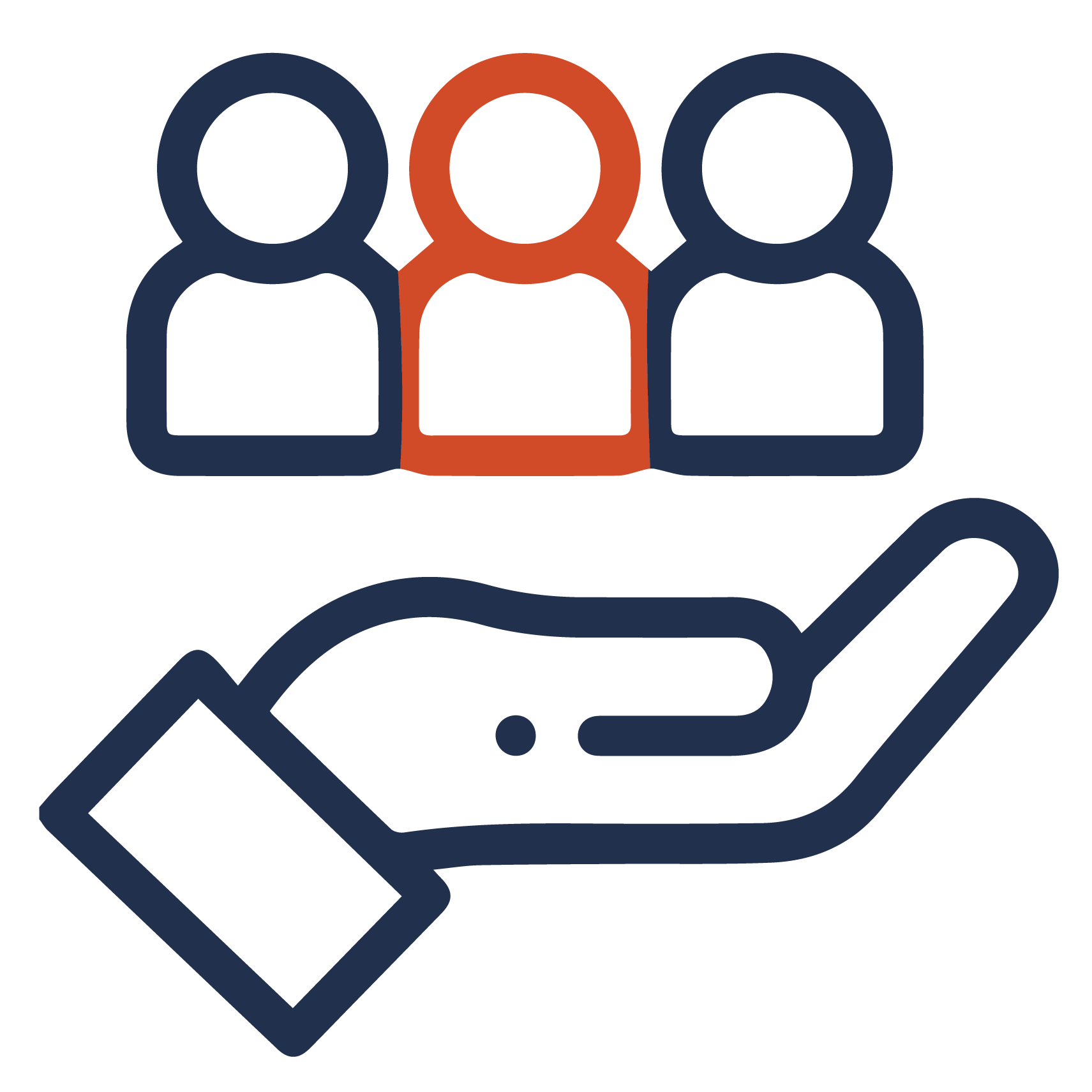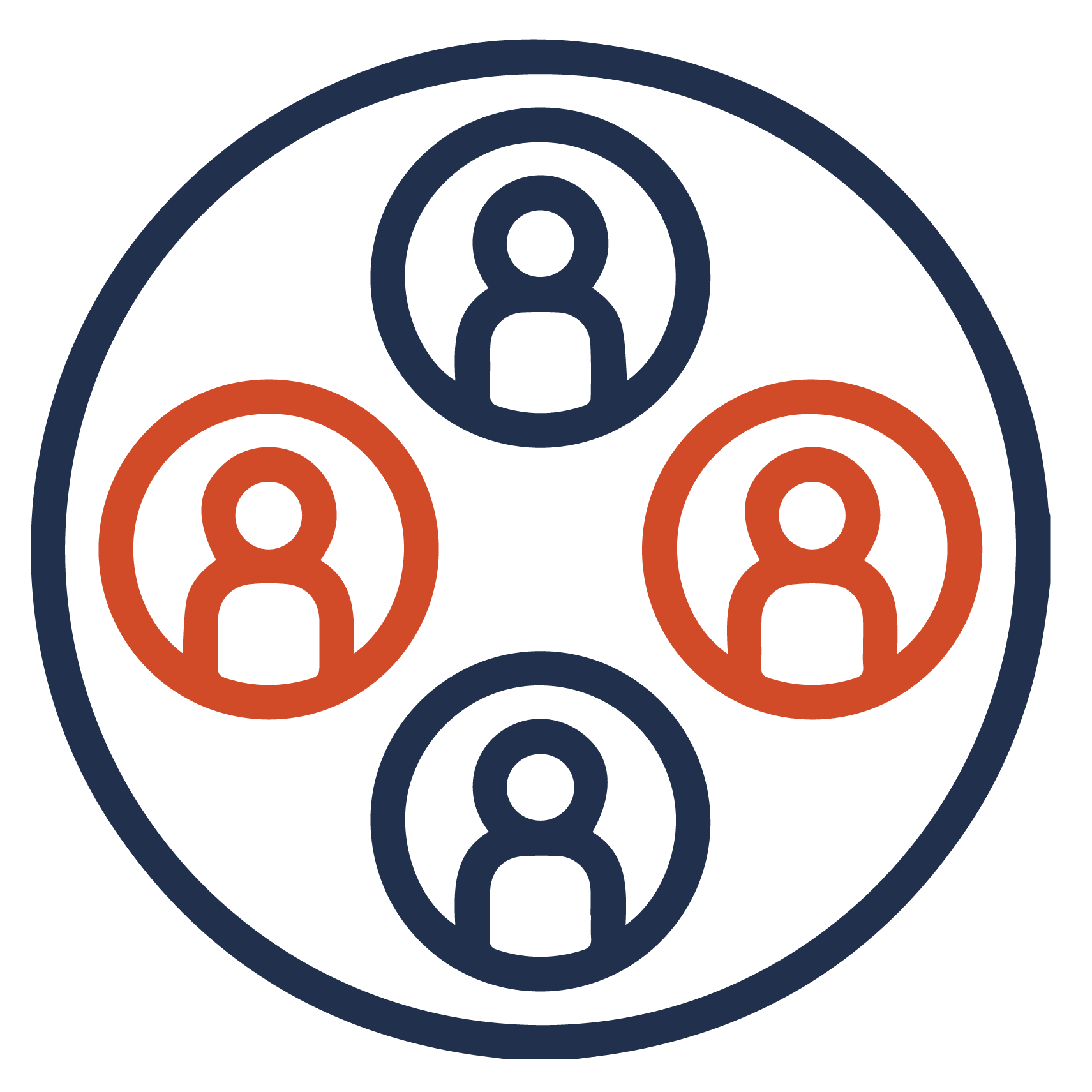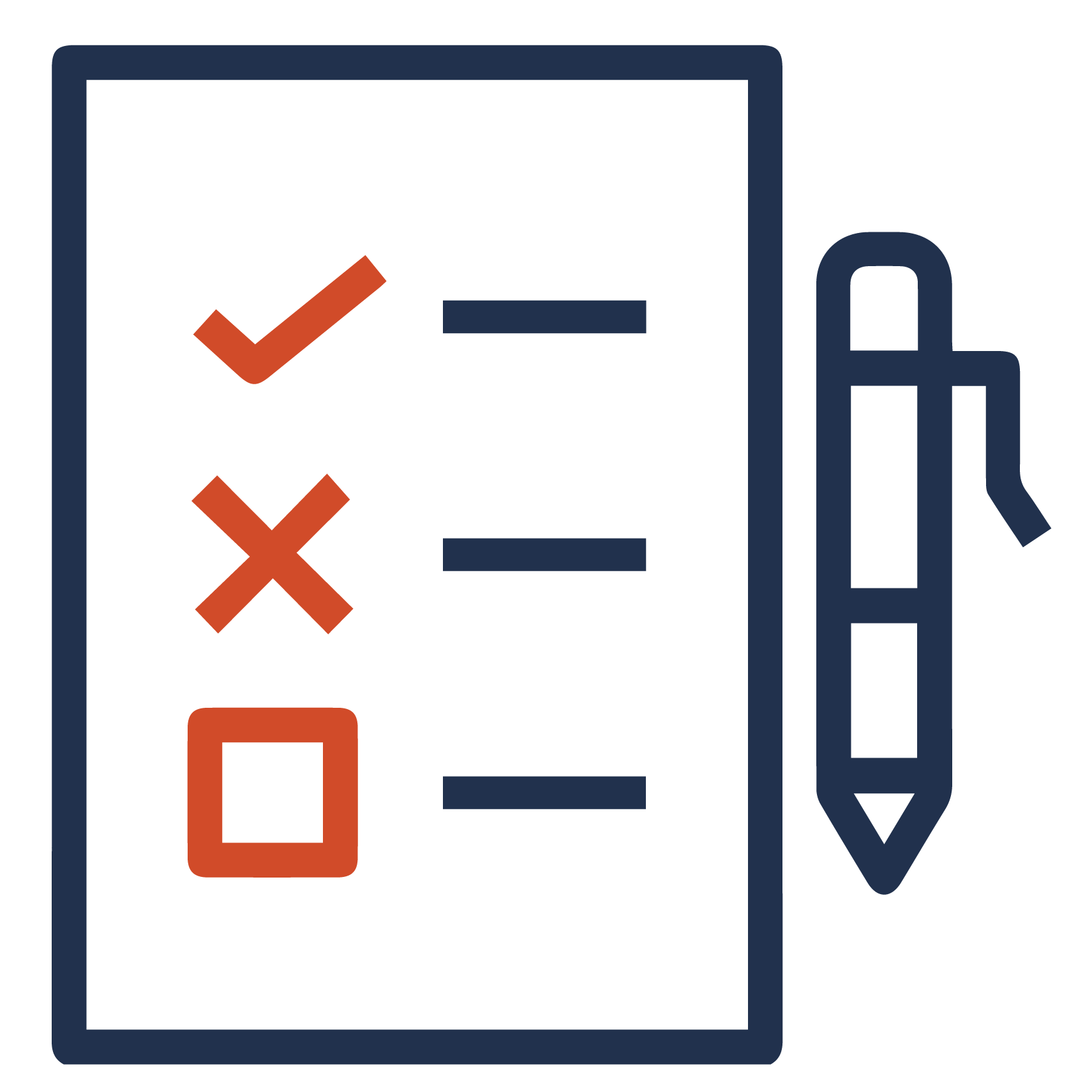DI&A Resources to Support Proposals
DI&A + Research Development
Menu of Mines DEIA Programs and Resources for Proposals
Colorado School of Mines has a wealth of Diversity, Equity, Inclusion, and Accessibility (DEIA) programming that Principal Investigators (PIs) can leverage for their research proposals. The following is a list of programs and opportunities that you could collaborate with. The idea behind this curated list of opportunities is not to simply check proposal DEIA boxes, but to improve your proposal impact by leveraging existing programs and resources. The programs listed here are potential collaborators; you should reach out to the contact listed early in your proposal development and define a partnership and budget before listing them in your proposal.



Recruitment and Hiring
Inclusive Leadership
Literature and best practice suggest that successfully cultivating an inclusive research culture must have leadership who is truly committed and that DI&A is woven throughout the fabric of the program (Claeys-Kulik et al. 2018, Hartman et al. 2019). It is also important to have a diverse leadership team, but be sure to avoid tokenism when assembling your team. Inclusive leadership is a cultivated skill; consider committing your leadership team to relevant leadership trainings.
What you can do:
In your proposal, commit your team leadership to taking some sort of inclusive leadership training. Some options include:
- Academic Management Institute (AMI) for women leaders. Mines sponsors up to four women. Applications are required (due early August) and acceptance is not guaranteed.
- Mines is a member of NCFDD (National Center for Faculty Development & Diversity). All faculty, postdocs, graduate students, administrative faculty and other employees at Mines have access to NCFDD’s member resources, which include a wide range of career and leadership development resources and trainings. Anyone at Mines can access the resources via our membership.
Broadening Participation via Student Recruitment
Research shows that making personal and meaningful contact with potential underrepresented students, in coordination with a university-wide recruitment program and a strong commitment to DEIA, can improve the diversity of applicant pools (Quarterman 2008, Muñiz 2011). Mines Human Resources offers on-demand courses on this topic. Reach out to Rakhi Ihiga at rihiga@mines.edu for more information.
What you can do:
Undergraduate recruitment: Consider including a budget to pay for undergraduate researchers, including potential transfer students, in your team. You can collaborate with the Mines First-Year Innovation and Research Scholar Training (FIRST), Mines Undergraduate Research Fellowship (MURF), and Summer Undergraduate Research Fellowship (SURF) programs to recruit them and to leverage their wonderful professional development programming; connect with them at https://www.mines.edu/undergraduate-research/.
Graduate recruitment: Connect with your department’s graduate admissions committee and ensure that they are implementing practices to recruit broadly and minimize bias (hint: request the unconscious bias workshop for the committee). Describe these approaches in your proposal. Consider including a budget to send faculty to major conferences such as NSBE and SHPE to recruit; be sure to collaborate with Mines admissions recruitment efforts taking place at the same conferences. Contact Jennifer Briggs, Assistant Dean of Graduate Studies, at jsbriggs@mines.edu.
Procurement and Contracts
Mines procurement policies can support the impact of research projects on underserved communities and businesses. See Mines’ procurement policy for the latest. As of 2023, for bids of equal quality, Mines procurement policy gives preferences to small business as defined by the Small Business Administration, Local Business, Minority (MBE) owned, Women (WBE) owned or Hub Zone (HZ) Business. Small dollar purchase agreements may be awarded by competitive negotiation with donor, small, Local, Minority, Women or Hub Zone Businesses when it is in the best interest of Mines to do so. Mines may actively encourage small, Local, Women, Minority, In-State or Hub Zone Businesses to participate in the competitive negotiation process or partner with vendors.
What you can do:
In your proposal, you can describe these procurement policies and report on the number/percentage of small, Local, Minority, Women, In-State, or Hub Zone businesses that you do business with as a result of the research award. Contact Procurement Services with questions.

Cultivating an Inclusive Culture
Mentoring programs
High quality mentoring programs for students and faculty in STEM yield many benefits, but unfortunately people from underrepresented groups tend to have limited access to these mentors (NASEM 2019). Ensuring that ALL members of your team have access to quality mentoring could improve climate and retention for your project team (see the NASEM 2019 report on effective mentorship).
What you can do:
You could:
- Start your own mentoring program (only recommended for very large proposals with large numbers of students, and only recommended if you follow the NASEM 2019 recommendations).
- Identify a mentoring program within your field sponsored by your professional societies, such as SWE, SHPE, or NSBE, that you can leverage.
- Leverage the NCFDD resources for professional development for students and postdocs on your team. Our institutional membership includes monthly webinars, access to dissertation services for graduate students, a wide range of career development and diversity-focused resources, and much more.
Mines Community Alliances
Employee resource groups (ERGs) serve as a catalyst for people to learn about other cultures, embrace differences, and appreciate the strength and value of a diverse workforce. They also align with institutional mission and vision with respect to DEI. Mines has the academic equivalent to ERGs, called Mines Community Alliances (MCAs). Mines has five MCAs: Latinx, Women, Black, LGBTQ, and Asian. MCAs aim to create community and learning opportunities for underrepresented employees.
What you can do:
For your proposal you could:
- Collaborate with a specific MCA. They all do different outreach and educational activities.
- Support the MCA’s professional development day; contact them to see how!
- Encourage all staff, postdocs, and faculty to participate in MCAs.
Fostering an inclusive culture: Workshops for PIs and Teams
Inclusion is critical to encourage participation, foster innovation, support career growth, and retain diverse populations of students and faculty (Camacho et al. 2011, Leath et al. 2018). DI&A at Mines offers many workshops on demand. These workshops are for ALL PIs and students and can help foster an inclusive research culture. See a summary of workshops on their request-a-workshop website. Workshops can help minimize bias during recruitment, and can train people to intervene when they experience a microaggression. You can also request other workshops such as safezone training through the DI&A workshop portal. Raw (not analyzed), anonymous survey and participant data will be delivered to you for reporting to funders.
What you can do:
In your proposal, commit your team to one or two workshops per year, picking from the DI&A menu what workshops make the most sense for your project. PIs should expect to budget $500 per workshop. You may request a letter of support (if allowed) from Mines DI&A to further document this commitment. Contact diversity@mines.edu.
Inclusive classrooms
The Trefny Innovative Instruction Center for offers a wealth of resources, workshops, and learning communities to support you in cultivating an inclusive classroom climate. Whether you’re integrating research topics into your classes at Mines, conducting K-12 outreach, or writing an education proposal, consider collaborating with Trefny. DI&A and The Trefny Center have developed an inclusive classroom checklist that you can use to improve your classroom climate. https://www.mines.edu/academic-affairs/wp-content/uploads/sites/9/2022/08/Inclusive-Teaching-Practices-Tips-Checklist.pdf
Check out upcoming events here: https://trefnycenter.mines.edu/events/
What you can do:
In your proposal you could:
- First and foremost, enlist the Trefny Center to consult with you on your evaluation plan and potentially be a named partner on your proposal to carry out your evaluation activities.
- Integrate a workshop on inclusive classrooms into your proposal; this option is particularly useful for education and workforce development proposals.
- The Trefny Center supports many learning communities. You could even talk to them about facilitating a unique learning community for your research team.
K-12 and Transfer Student Engagement
Enrollment Management oversees several K-14 (K-12 and community college) programs that you may include in your proposal listed below. For a more detailed document of these programs please refer to the document found in the Community Impacts Toolkit HERE
- SUMMET: Summer Multicultural Engineering Training Program. Week-long residential summer camps at Mines for rising juniors and seniors who identify as underrepresented minorities, first generation, and/or female. Contact info: Louisa Duley (Admissions – Director of SUMMET), lduley@mines.edu; Michelle Fisher, EDS faculty/Academic Lead, mfisher@mines.edu; Liz Cox (faculty engagement in SUMMET)
- TRIO: Upward Bound Math and Science. A year-long college prep program in Alameda International Jr./Sr. to encourage students to pursue secondary education in STEM. Includes a four-week summer program, with one residential week at Mines. Contact info: Dari Roybal, TRIO Director, darianaroybal@mines.edu
- EcoSPHERE Innovation Cup: Bridging Design with Social and Environmental Impacts – (w/Cornerstone Design Program). An environmentally-focused design competition for high school students that supports teachers to learn more about the engineering design process.
- BOTS: Broadening Opportunities for Transfer Student Success (with University Honors & Scholars Programs). Research experiences for community college students. While the platfrom exists, BOTS is currently not active and needs grant funding to re-build.
- Colorado Community College System (CCCS) Student and Faculty Engagement: Transfer scholarships; Mines Academy at Front Range and Red Rocks Community College; Articulation Agreements with Hispanic Serving-Institutions; faculty workshops, etc.
- Partnerships with community colleges around workforce development. Aligning research with statewide STEM workforce initiatives.
- K-12 STEM Work-Based Learning. Connect your research to help K-12 students learn about related careers through tours, videos, podcasts, or presentations, mentorship and other opportunities.
For information about campus demographics and current students, please consult the new public dashboard at https://ir.mines.edu/data-visualizations/student-profiles/.
What you can do:
Please consult with the contact person listed for each of these programs with a brief description of your grant program. Depending on the type of activity that you propose, the Admissions and Enrollment team at Mines can help support data tracking of your participants, messaging about college and Mines in particular (including providing swag and handouts!), and possibly even support your participant recruitment and application process. Not only will partnership with Admissions and Enrollment management improve the quality of your program, but it is incredibly helpful for them to have data on pre-college students who might apply to Mines. Research has shown that students who have interacted with a Mines experience or been to campus have a higher rate of application and acceptance to Mines.
Girls Lead the Way (GLtW) and Girl Scout Engineering Day
The annual Girls Lead the Way conference welcomes approximately 200 high school girls to a full day event, introducing them to engineering and the Mines campus. Participants leave more aware of the wide variety of careers available to them, and more confident that they have the ability to succeed in pursuit of their passions.
Girl Scout Engineering Day, serving 4th and 5th graders, is one of the signature events for Mines Women in Science, Engineering and Mathematics (WISEM) and the Society of Women Engineers (SWE) and is an exciting and rewarding venue for members to share their love of STEM with aspiring young scientists and engineers. Approximately 100 Junior Girl Scouts attend and participate in 10 different STEM experiments.
What you can do:
For your proposal you could:
- Have project team members volunteer at GLtW existing events, supporting the activity in your field (they already have activities for most majors at Mines)
- Develop a new activity based on your research
Rocky Mountain MESA K-12 STEM competitions
Rocky Mountain MESA (Mathematics, Engineering, Science Achievement) is a statewide STEM equity focused organization for traditionally underserved and underrepresented students that provides tools, technologies, resources, and collaborative partnerships with key higher education and industry professionals to optimize K-14 student preparation and success for leadership in tomorrow’s diverse STEM workforce. RM MESA recruits schools to participate in a yearlong academic STEM club or class, with an ultimate goal of competing in the MESA national engineering design competition (NEDC). The Designing for Equity event encompasses a range of challenges, requiring participants to devise innovative solutions to real-world problems.
What you can do:
For your proposal, you and your research team can provide career talks for the schools and/or serve as advisors for a RM MESA middle or high school team throughout the school year. Additionally, your team can volunteer to participate in the RM MESA Fall Kick-Off Workshop, which guides local teachers and graduate student mentors through the MESA curriculum, or act as judges for the end of year statewide STEM competitions.
Contact: Cynthia Howell (chowell@mines.edu) or Danielle Ladd (dladd@mines.edu)
K-12 Summer Camps & Teacher Training
Continuing and Professional Education Services (CPES) offers K-12 camps and K-12 teacher enhancement training. The K-12 Student Outreach Program offers various science, mathematics, and technology-content-based courses for students in kindergarten through 12th grade, such as engineering summer camps.
What you can do:
For your proposal, you could:
- Have project team members volunteer at camps, supporting the activity in your field (they already have activities for most majors at Mines)
- Develop a new activity based on your research
Continuing Education for Professionals
Continuing and Professional Education Services (CPES) offers and helps to coordinate professional development short courses, conferences, symposia, and workshops for working professionals to upgrade their technical job skills and remain abreast of recent developments in their respective fields of interest. See catalog here: https://learn.mines.edu/home-2/cpes-catalog/
What you can do:
For your proposal, you could collaborate with CPES to create a professional development opportunity for working professionals in the field of your research, to support workforce development.

Assessment and Evaluation
Climate Survey
Women and underrepresented groups in STEM are likely to encounter gender and racially stigmatizing experiences in daily academic life. DI&A at Mines conducted a climate survey in 2023. Data will be available soon, along with ways in which PIs can leverage climate survey data for their projects. Climate surveys can help you understand the baseline climate in your group, identify problem areas to address, and measure progress as you implement strategies to improve the climate and culture.
What you can do:
In your proposal, you might consider citing climate survey data in order to provide a baseline against which to measure the impact of your program. Contact Heather Houlton (hhoulton@mines.edu) for more information.
Trefny Evaluation Resources
Evaluation and assessment of your proposed DEIA activities is important in order to document the student experience and the overall impacts, and assess opportunities to improve. Meaningful assessment and evaluation should be based on appropriate metrics and are often conducted by someone external to the research team; see your RFP or FOA for specific guidance. The Trefny Center offers grant support for assessment and evaluation of proposals, particularly with respect to education and outreach efforts. The do survey design and can conduct research in your classroom. The Trefny Center also offers program-level student feedback; they can help gather and analyze feedback from students about their experience in a program to gauge what is working well and what could be improved. You can schedule a consultation to discuss opportunities.
https://trefnycenter.mines.edu/services/
References Cited
Camacho, M. M. and S. M. Lord (2011). “Microaggressions” in engineering education: Climate for Asian, Latina and White women. 2011 Frontiers in Education Conference (FIE).
Claeys-Kulik, A.-L. and T. Jorgensen (2018). Universities’ strategies and approaches towards diversity, equity and inclusion: examples from across Europe. Brussels, European University Association: 53 p.
Hartman, H., T. Forin, B. Sukumaran, S. Farrell, P. Bhavsar, K. Jahan, R. Dusseau, T. Bruckerhoff, P. Cole, S. Lezotte, D. Zeppilli and D. Macey (2019). “Strategies for Improving Diversity and Inclusion in an Engineering Department.” Journal of Professional Issues in Engineering Education and Practice 145(2): 04018016.
Leath, S. and T. Chavous (2018). “Black Women’s Experiences of Campus Racial Climate and Stigma at Predominantly White Institutions: Insights from a Comparative and Within-Group Approach for STEM and Non-STEM Majors.” The Journal of Negro Education 87(2): 125-139.
Muñiz, M. M. (2011). “The Strategies and Struggles of Graduate Diversity Officers in the Recruitment of Doctoral Students of Color AU – Griffin, Kimberly A.” Equity & Excellence in Education 44(1): 57-76.
NASEM (2019). The Science of Effective Mentorship in STEMM. Washington DC, National Academies of Sciences, Engineering, and Medicine.
Quarterman, J. (2008). “An assessment of barriers and strategies for recruitment and retention of a diverse graduate student population.” College Student Journal 42(4).